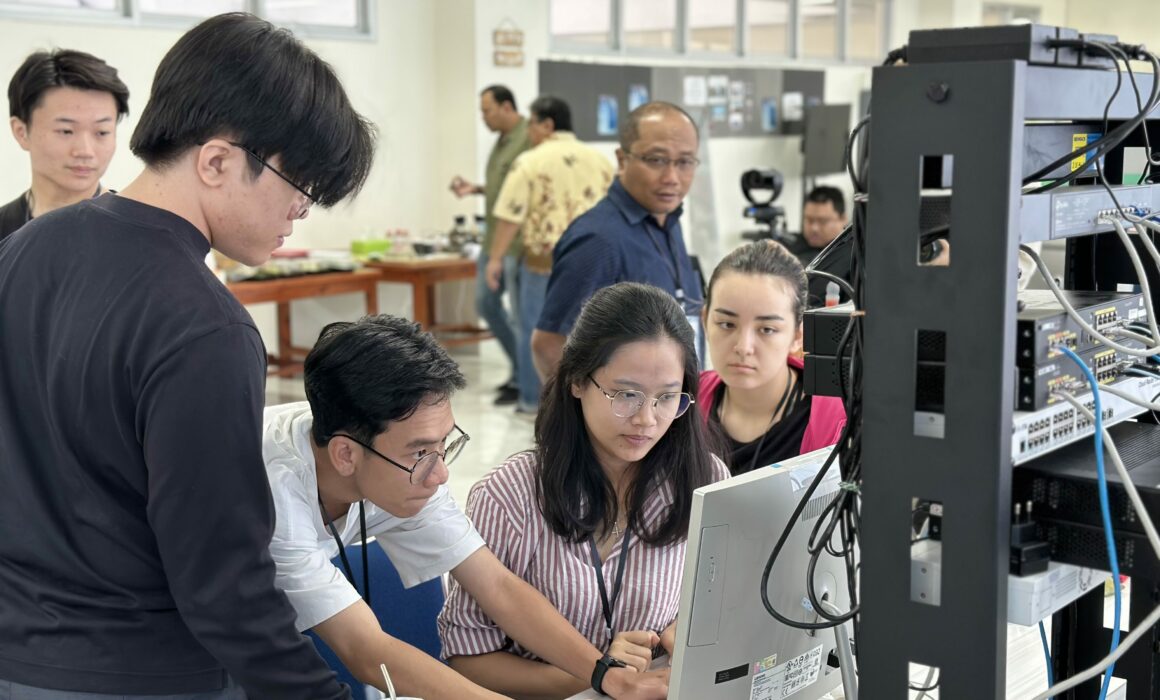APIE Camp #04 in UNHAS (Indonesia) and USM (Malaysia)
The 4th APIE Camp (12 to 15 August 2024) was the first one held simultaneously in two different venues: the Universitas Hasannudin (UNHAS) in Indonesia and the Universiti Sains Malaysia (USM) in Penang Island, Malaysia. UNHAS Unicon Lab facilities welcomed 19 students from Indonesia, Japan, Malaysia, and Vietnam. Ten other students from Bangladesh, Nepal, and Malaysia joined the program on the USM Computer Science Department site.
Lectures and trainers from APNIC, AWS, UNHAS, USM, and Keio University led several sessions and provided mentorship throughout the event. The organizing teams led in UNHAS by Dr. Muhammad Niswar and in USM by Dr. Yung-wey Chong included local students, teaching assistants, faculty members, and technical staff, who were crucial in preparing and facilitating activities to ensure a warm welcome for all participants. The administrative team in Keio also offered solid support for participants’ travel and other logistics.
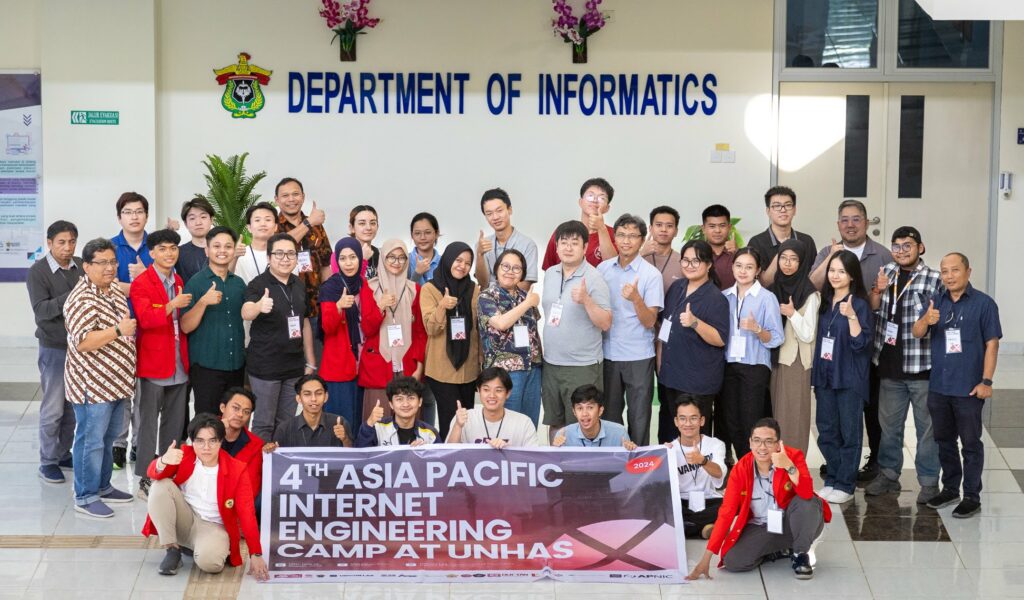
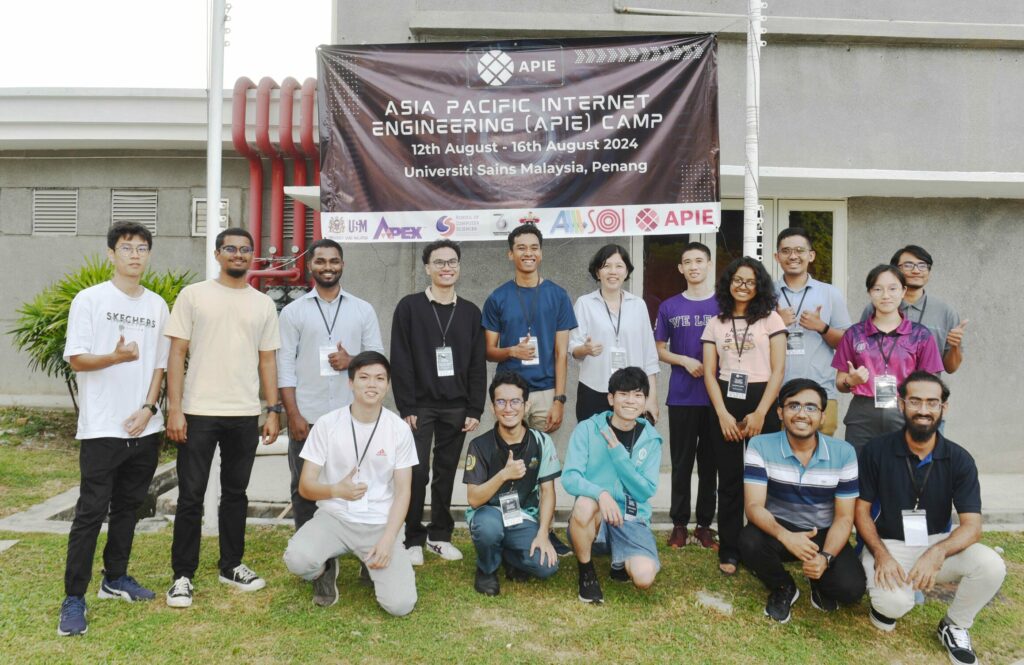
As in previous editions of the APIE Camp, the main task is to build a campus network. Participants were tasked with configuring routers to connect to the Internet using actual global IP addresses (IPv4 and IPv6) within the AI3 network and DNS servers capable of resolving names globally. An overlay network utilizing VPN technology was established specially for the camp to extend this environment to any partner universities in Asia.
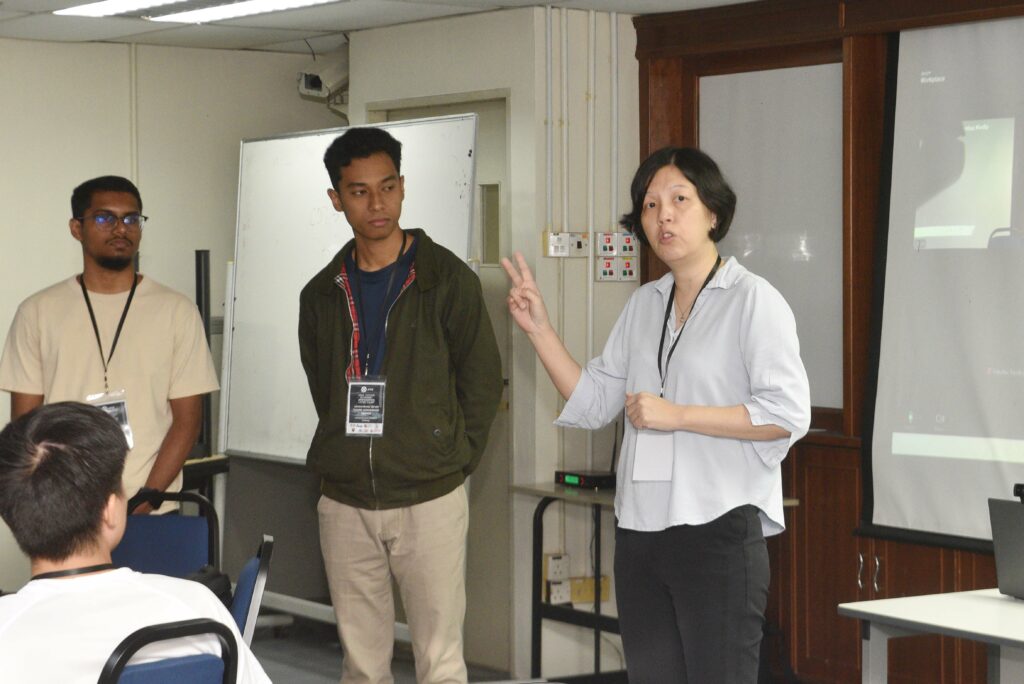
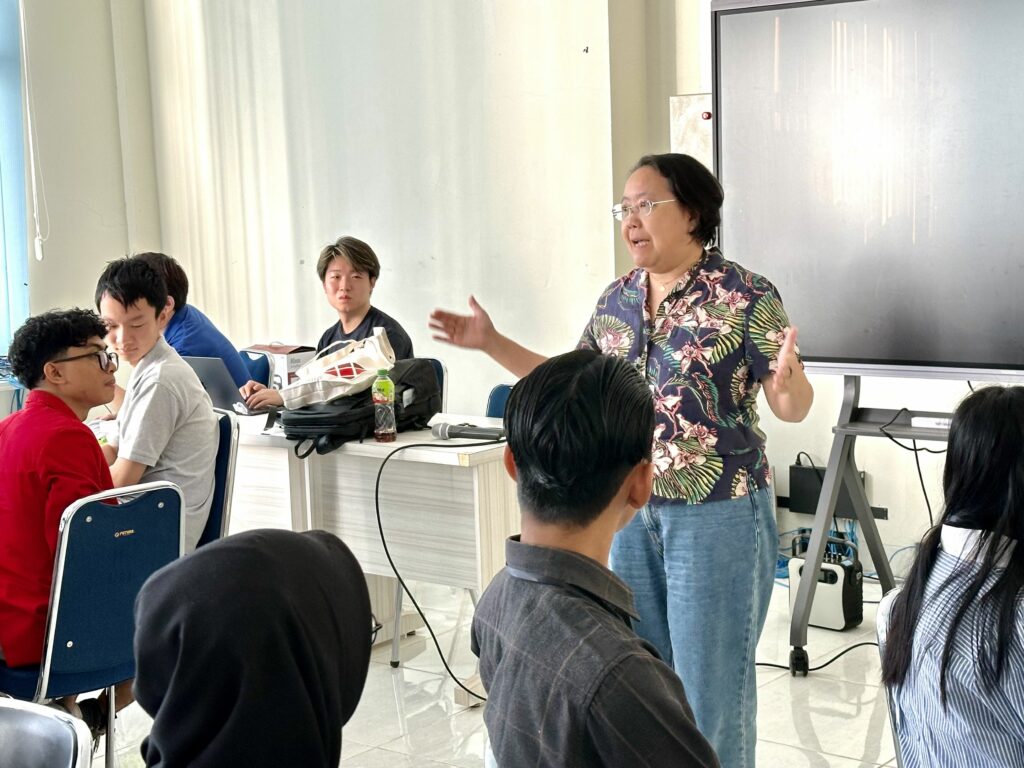
Prof. Muhammad Niswar (UNHAS) opened the camp with Dr. Yung-wey Chong (USM). SOI Asia director, Prof. Keiko Okawa (Keio), addressed welcome messages and provided details about the program. After icebreaker activities conducted locally, the 5-day curriculum started and covered the following topics:
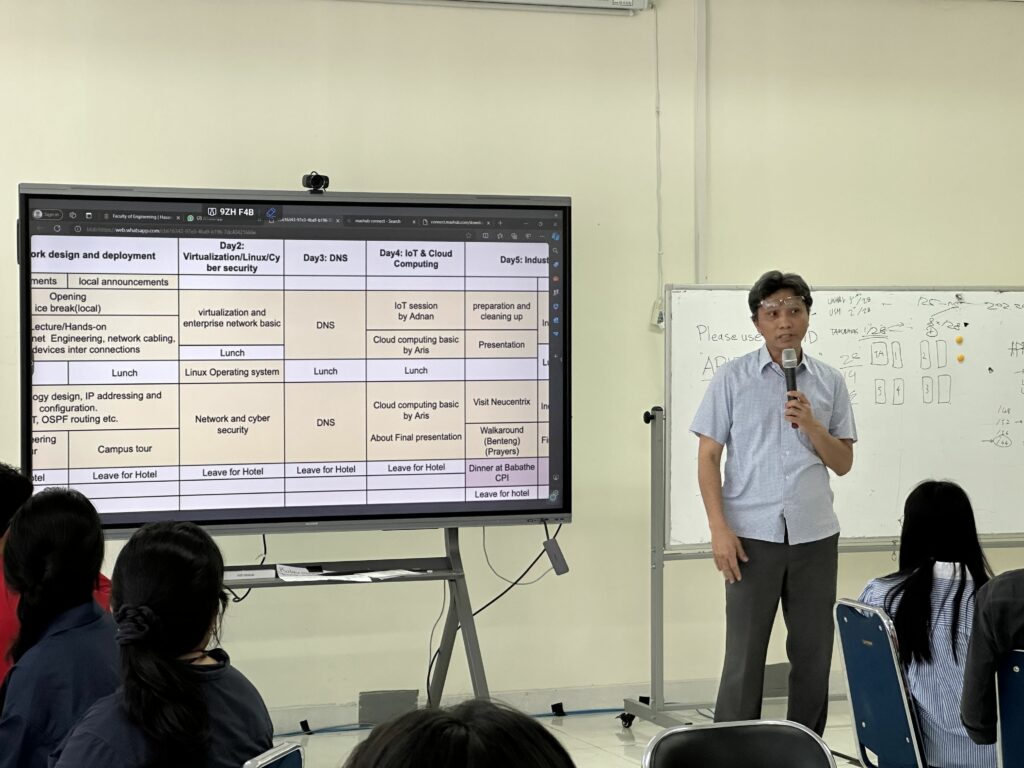
- DAY 1: Network design and deployment
- DAY 2: Server installation and virtualization, cybersecurity
- DAY 3: DNS setup
- DAY 4: IoT and Cloud Computing (AWS)
- DAY 5: Site visits to Neucentrix (UNHAS Camp participants) and Intel and Dell (USM Camp participants)
The main course content was live-streamed from Indonesia to Malaysia. Icebreakers and other activities, such as site visits, were conducted separately at each site.
Check the photo galleries for other highlights of the camp.
Day 1: Network design and configuration
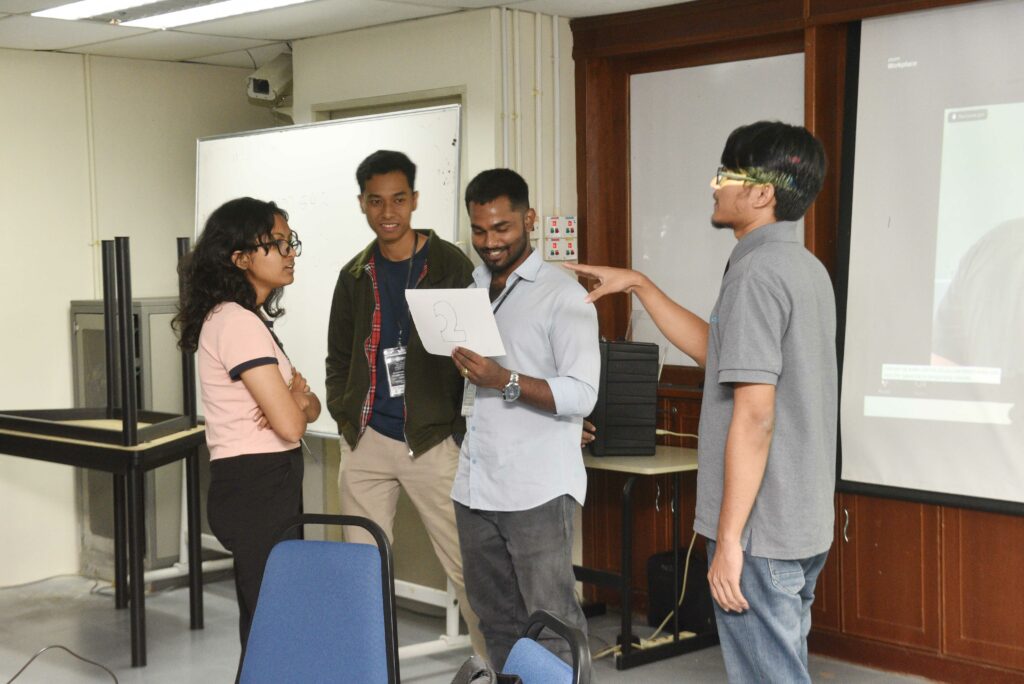
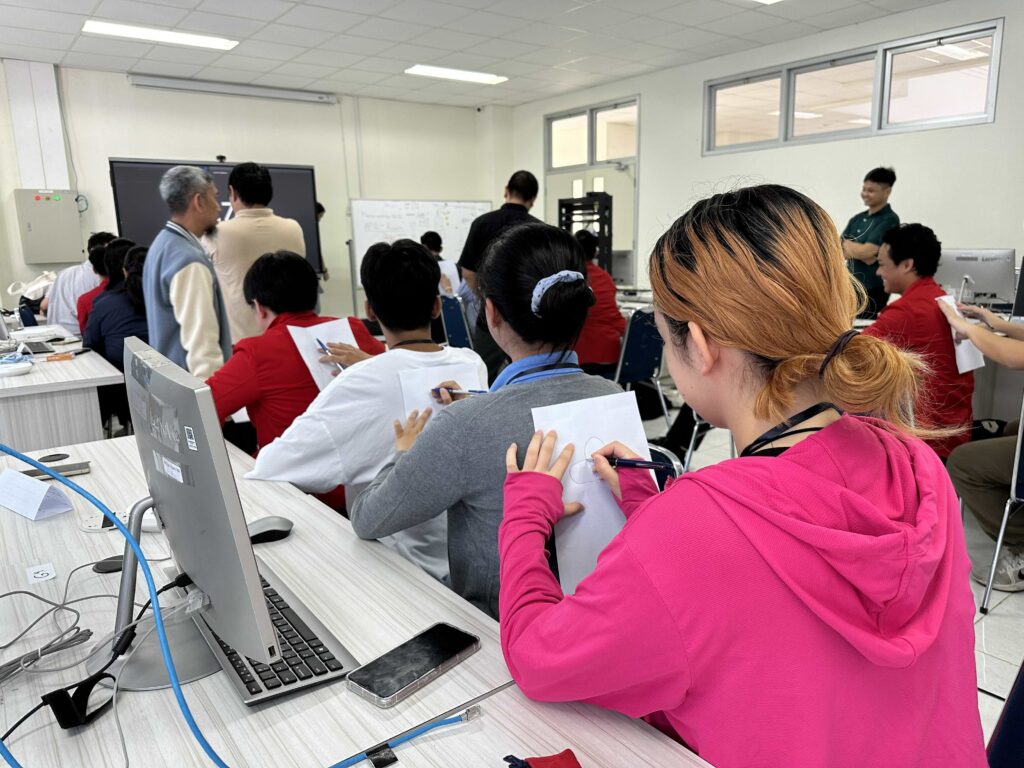
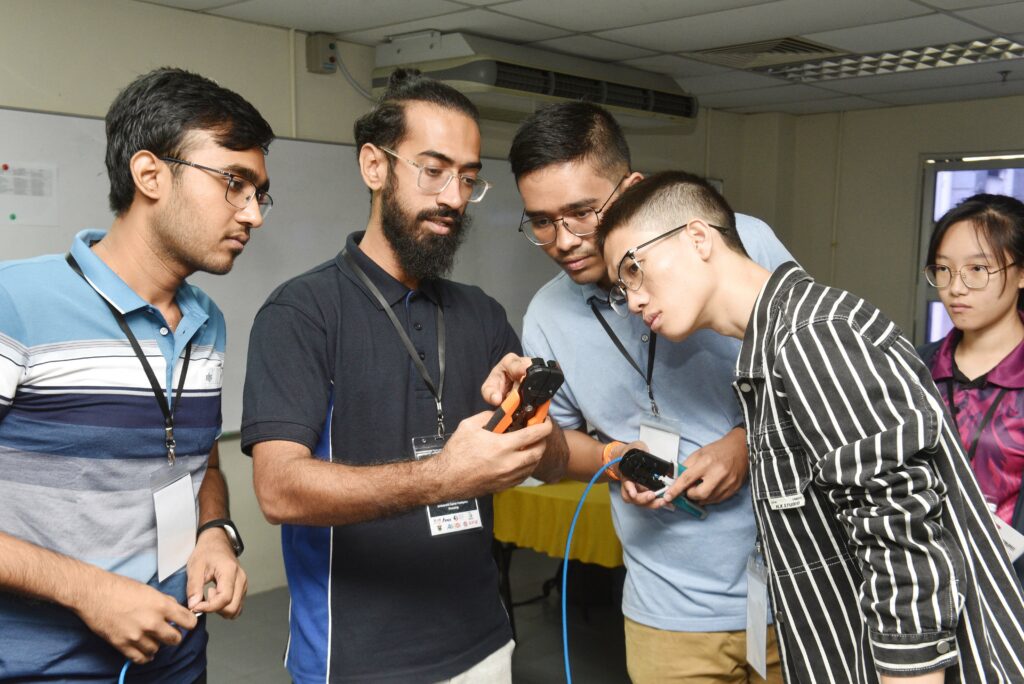
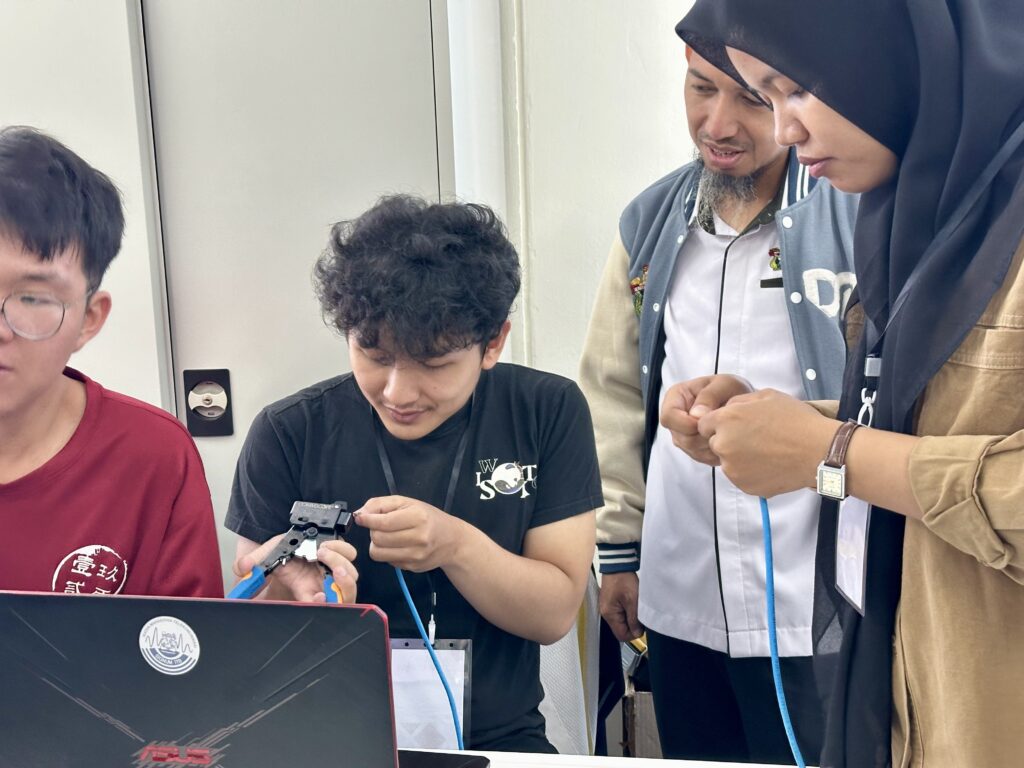
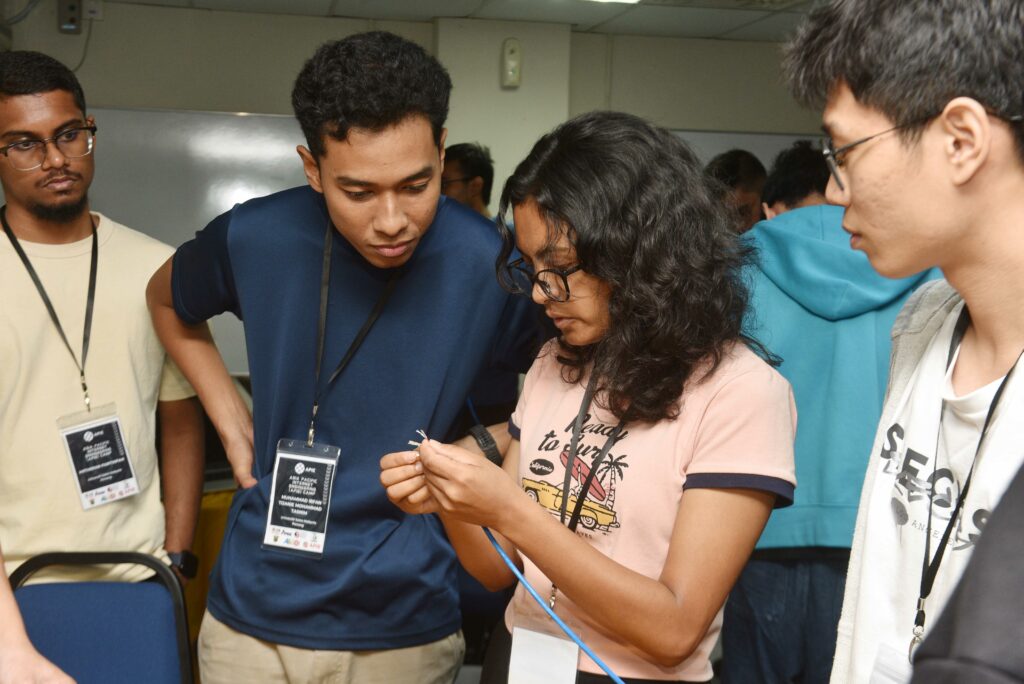
Day 2: Server installation and virtualization
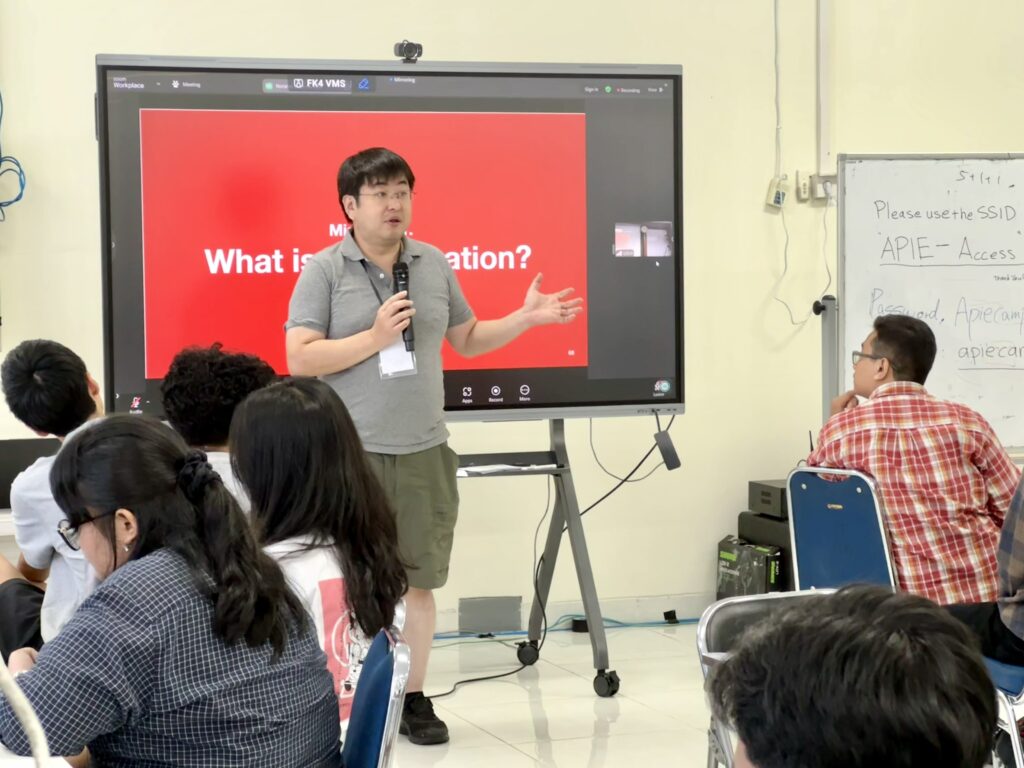
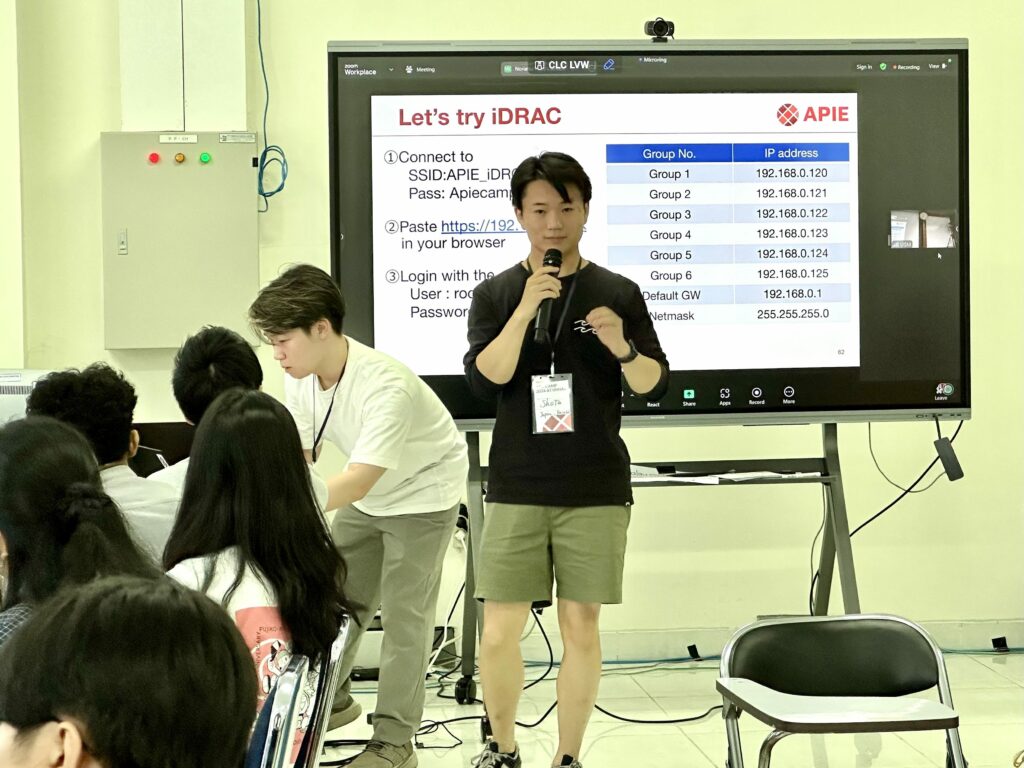
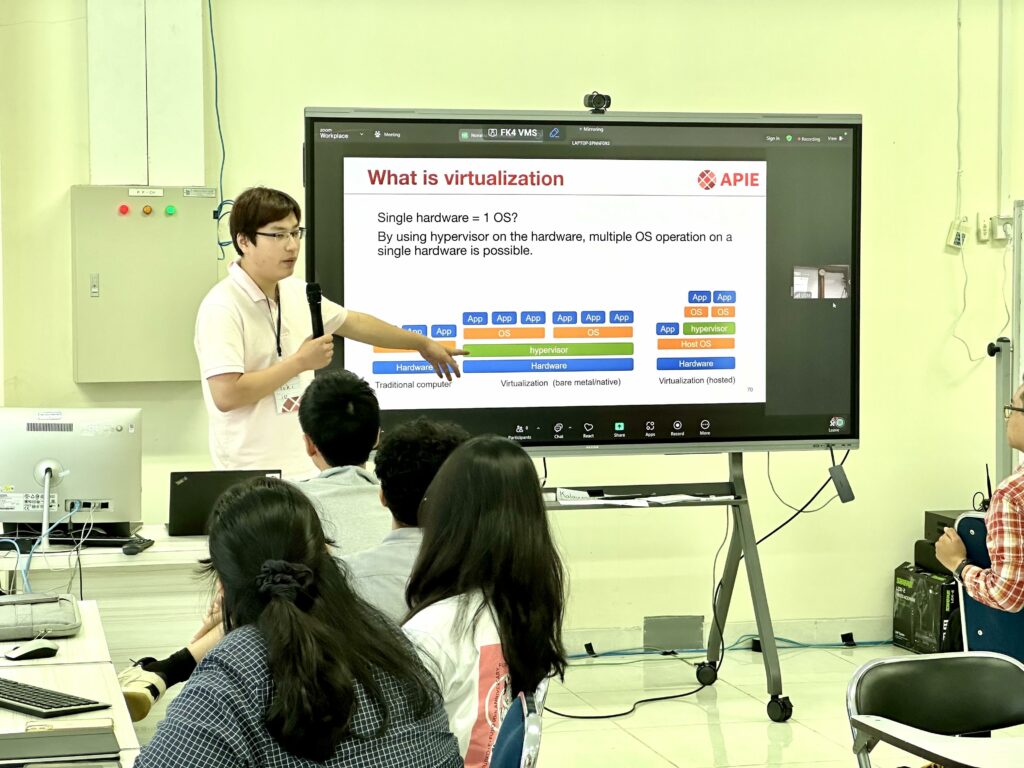
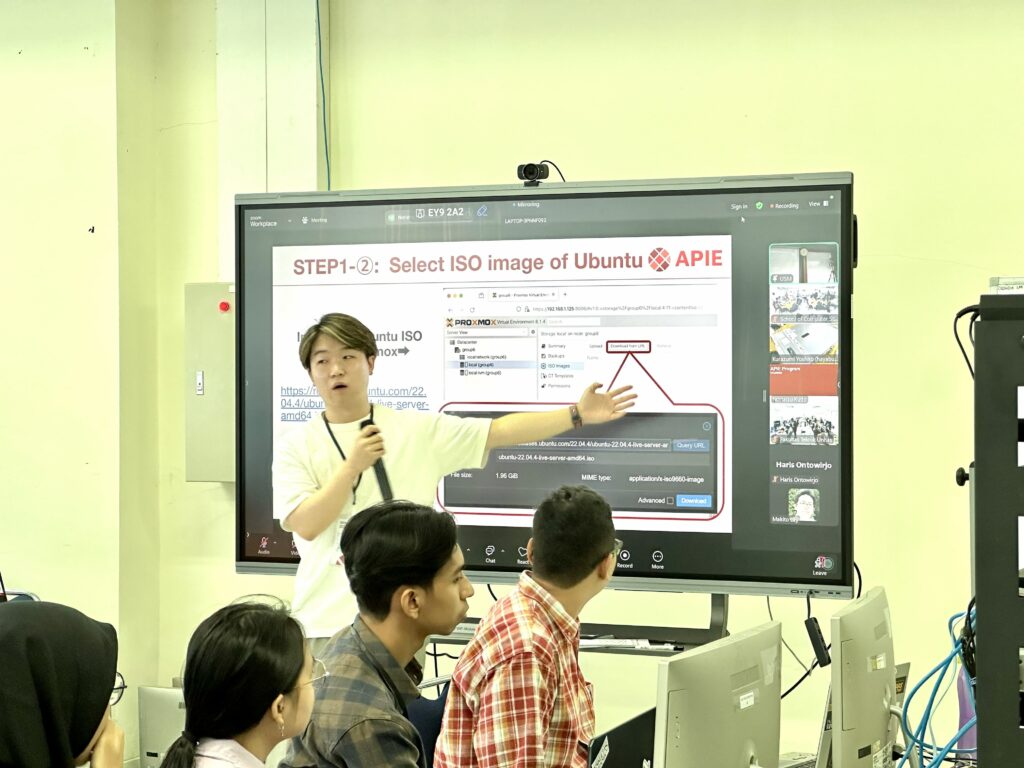
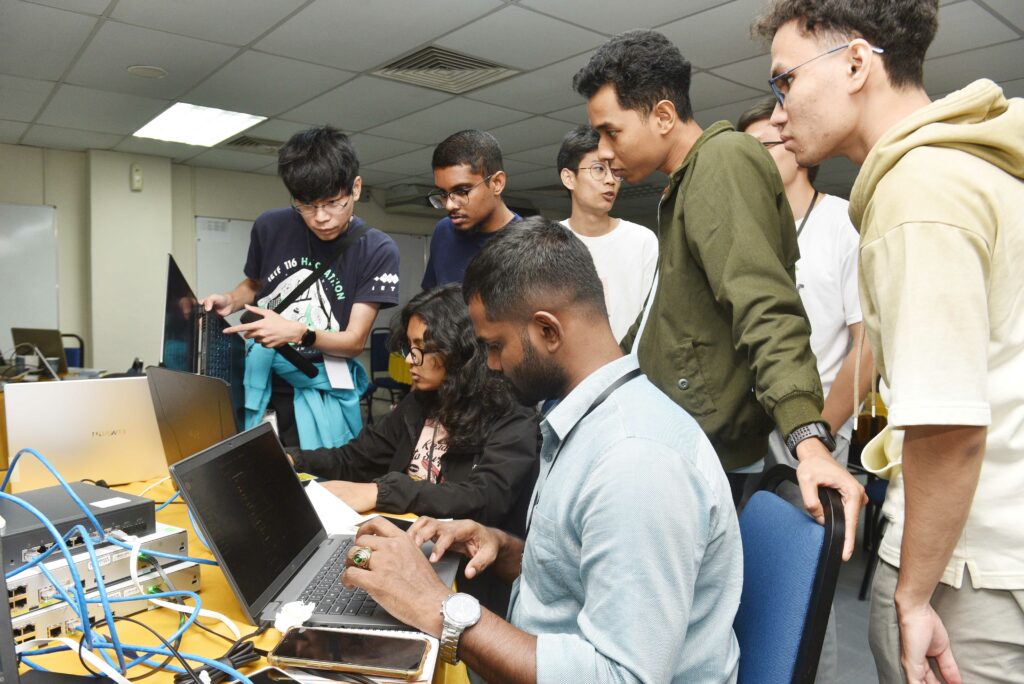
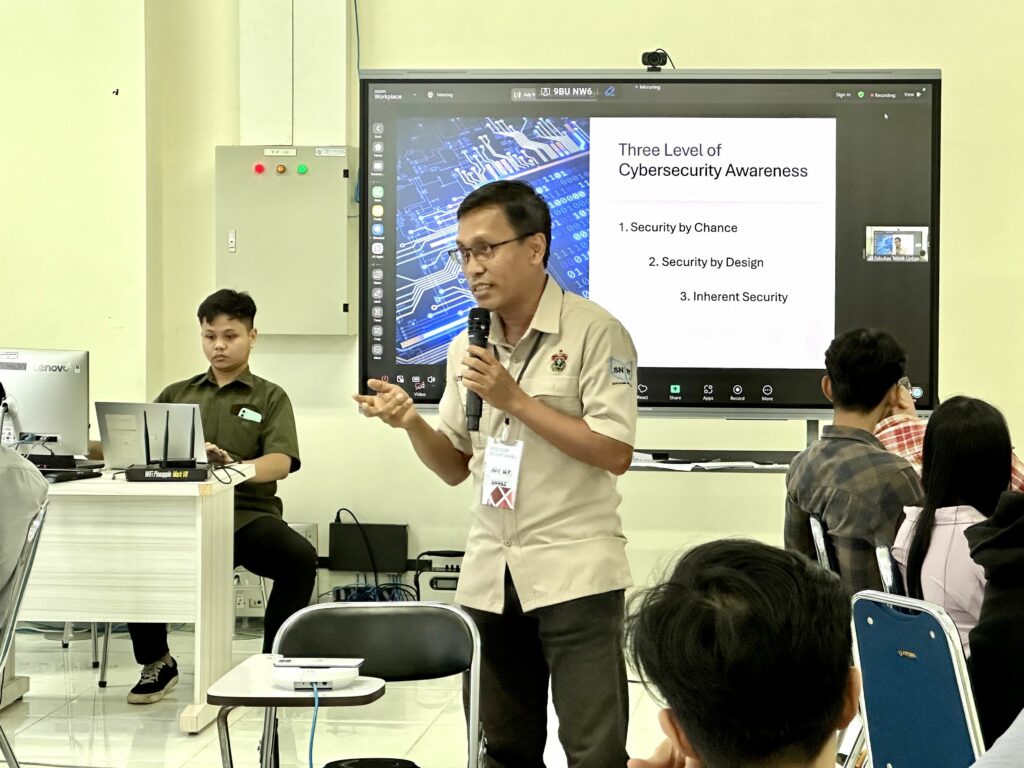
Day 3: DNS setup
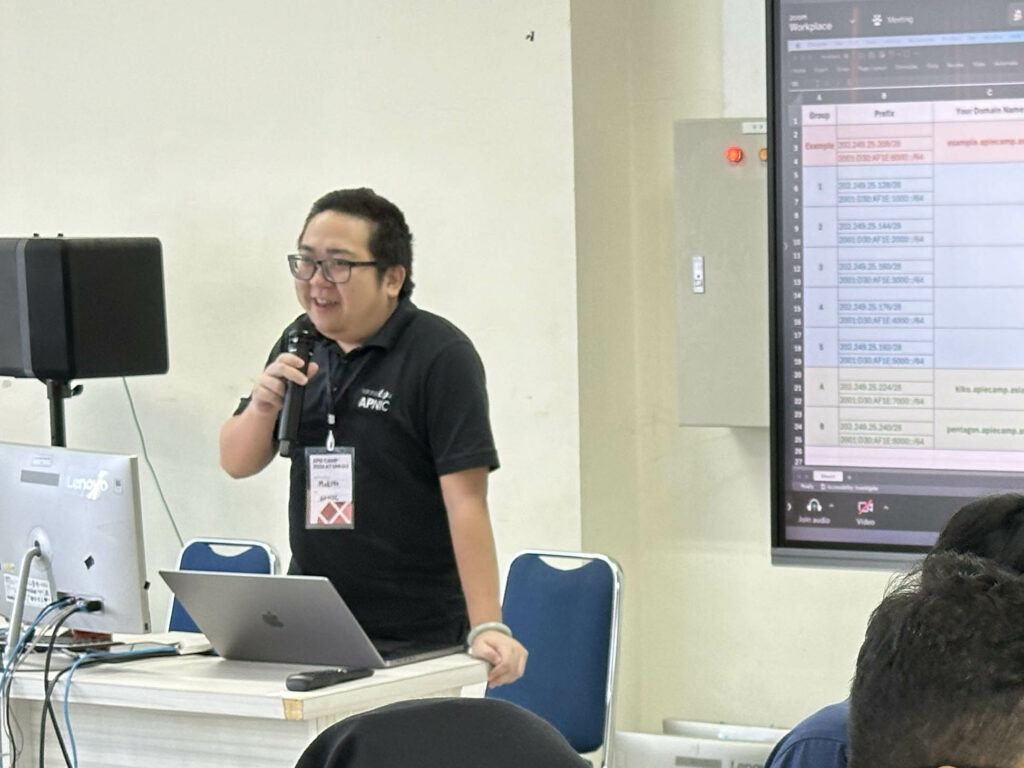
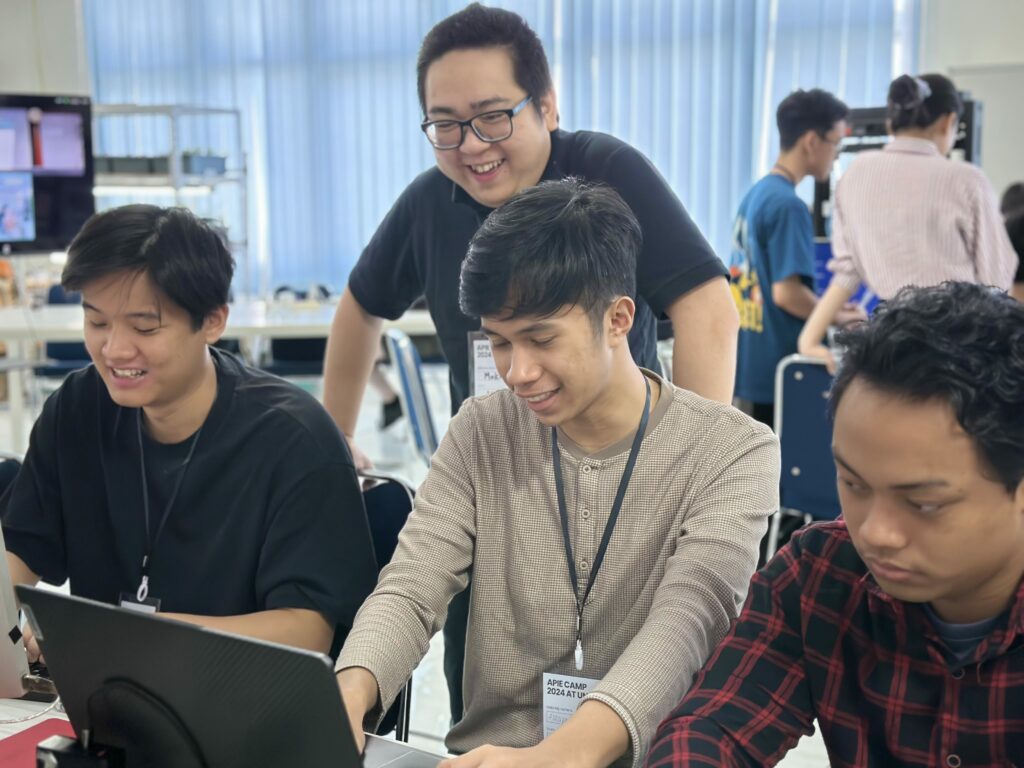
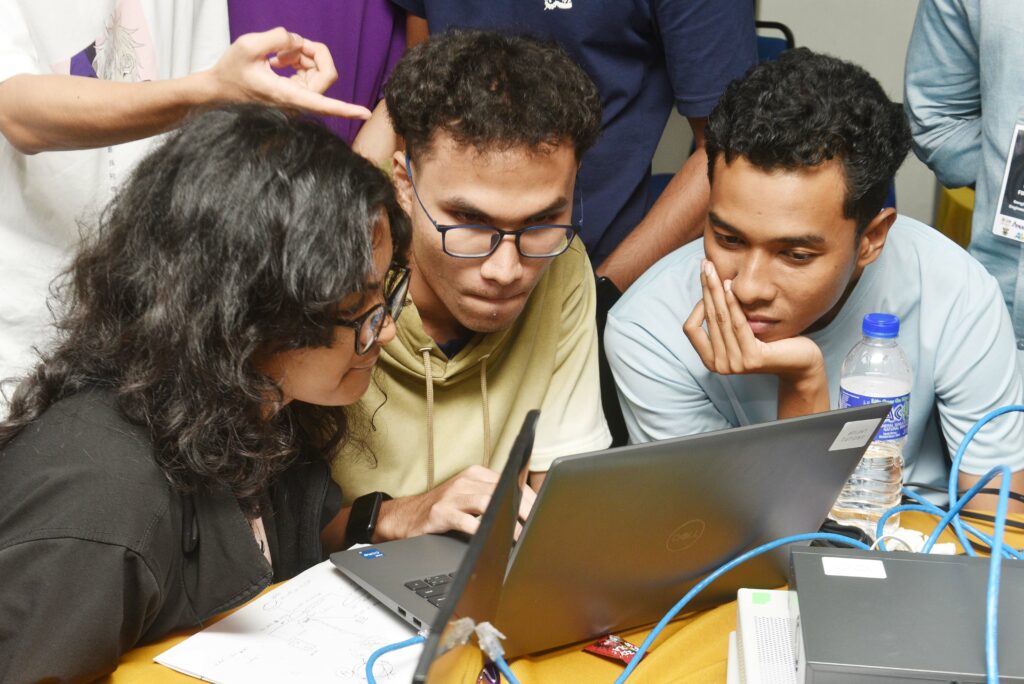
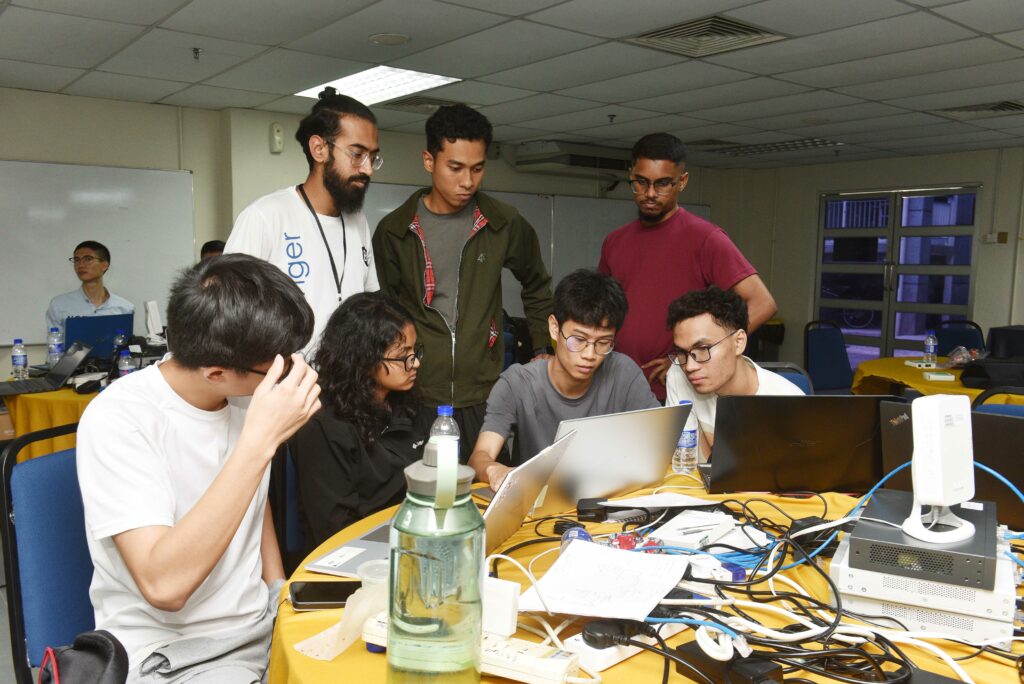
Day 4: IoT and cloud computing
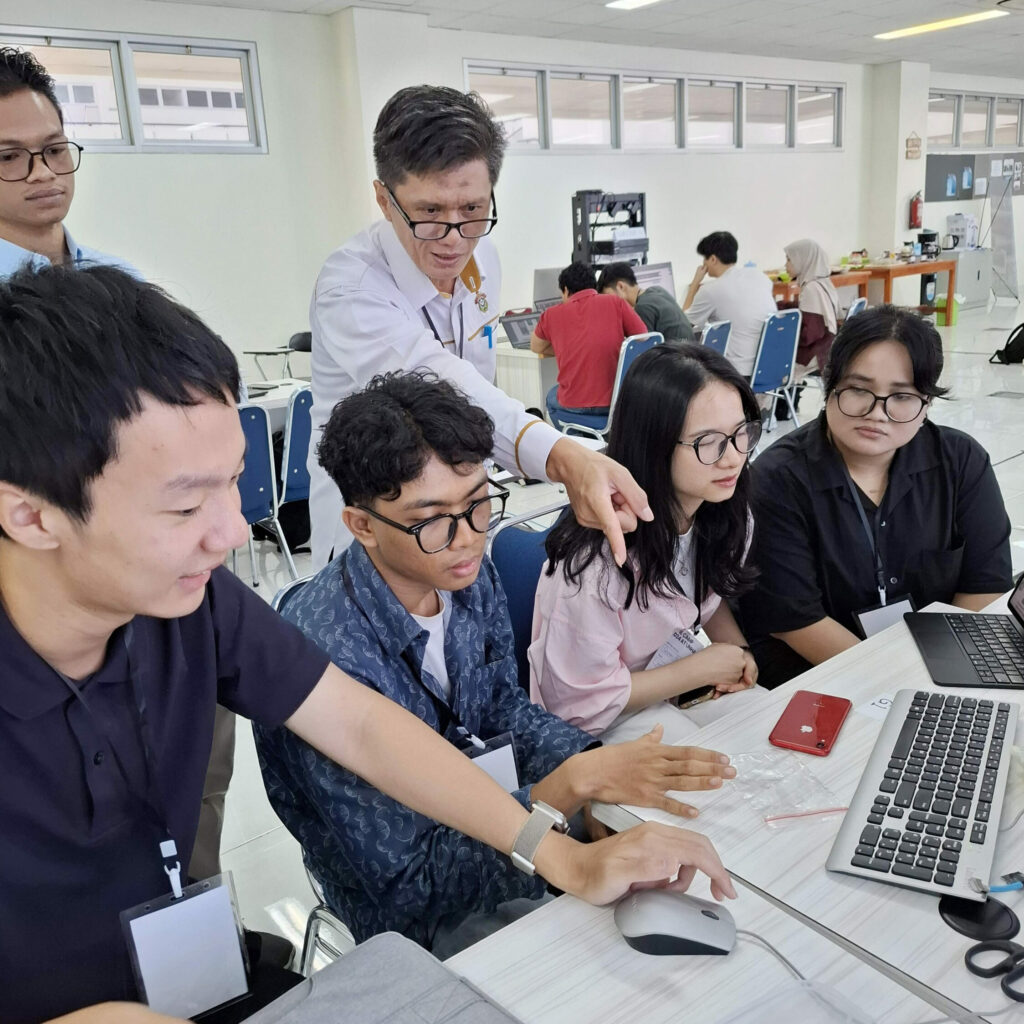
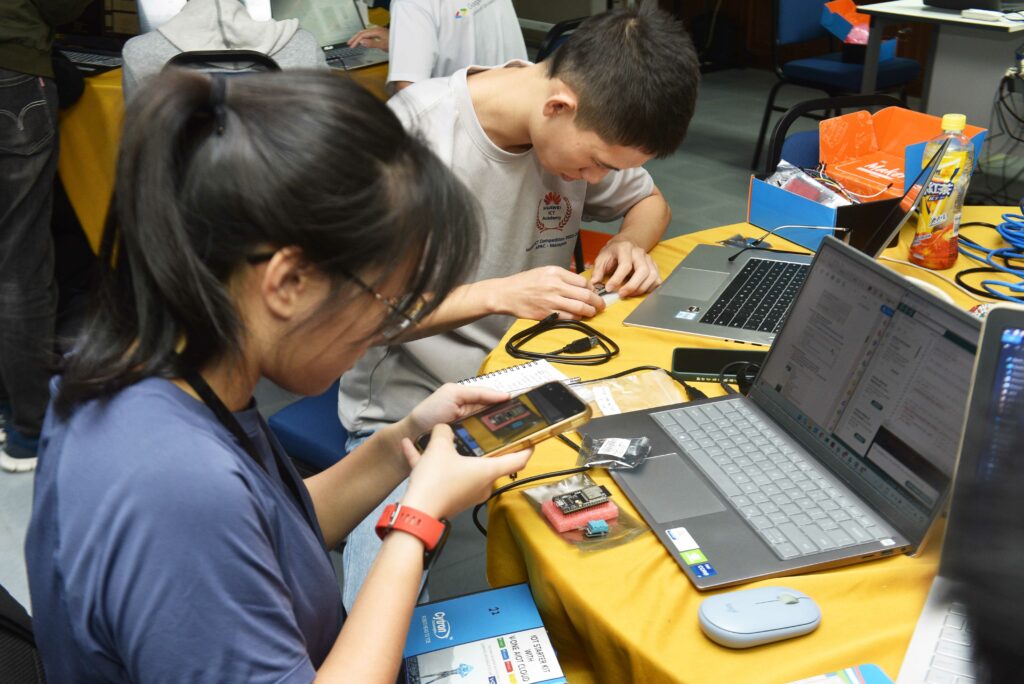
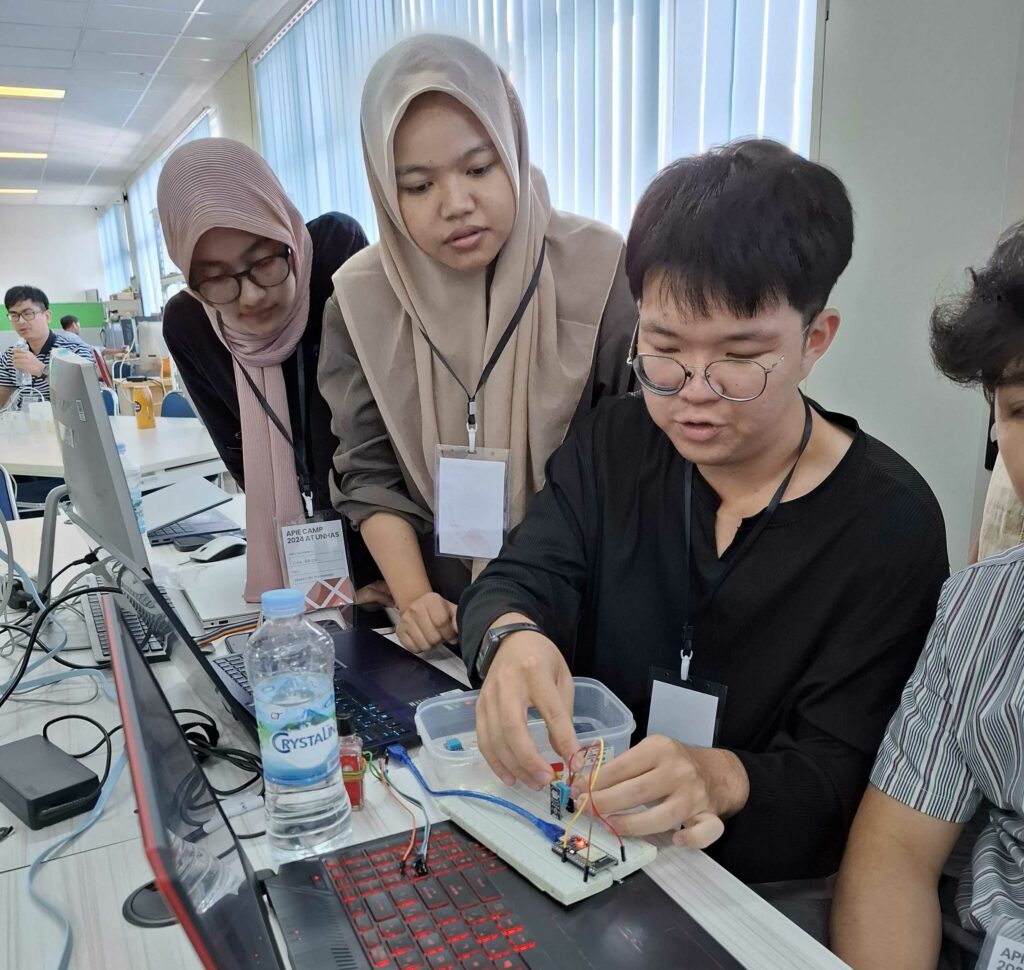
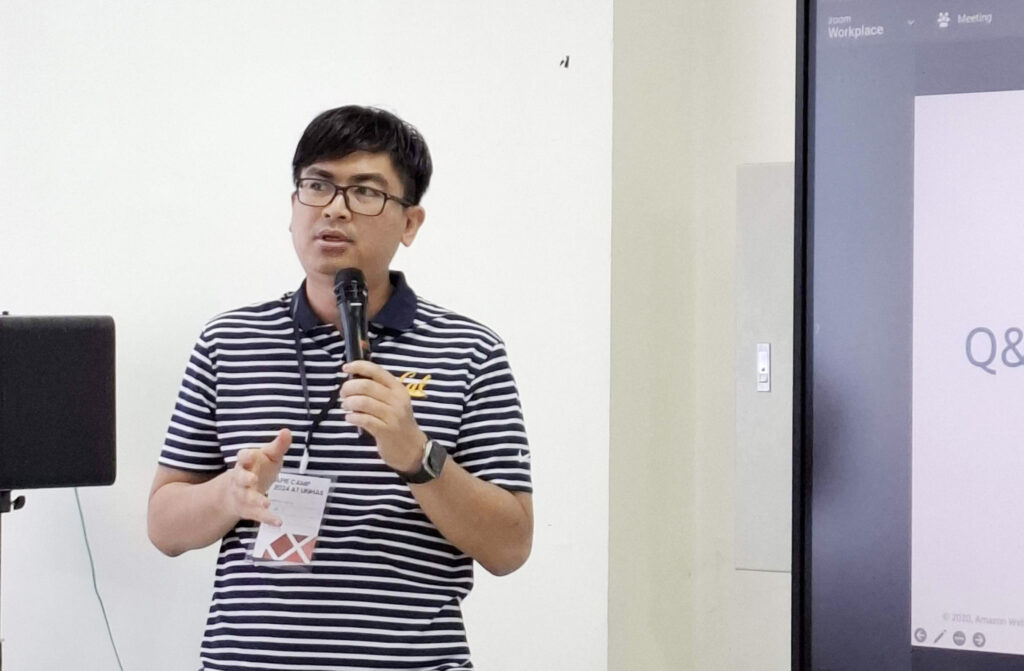
Day 5: Interim Presentations and Site visits
Participants at the UNHAS site shared their progress with other teams before going on a visit to the neuCentrIX data center in Makassar. USM camp participants visited two different sites: Intel Corporation and Dell Technologies headquarters in Penang.
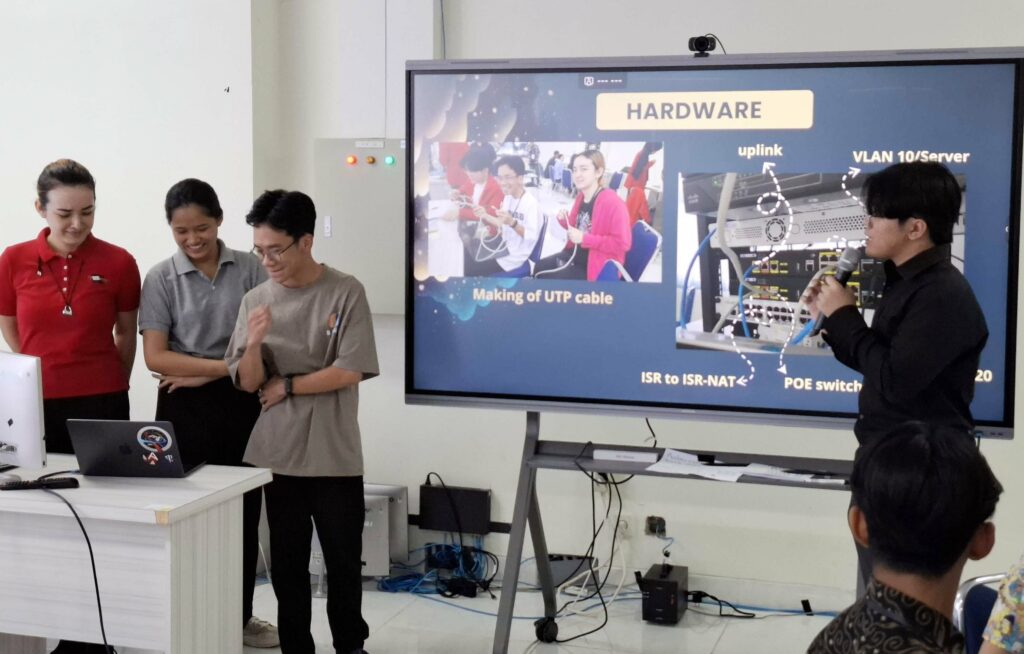
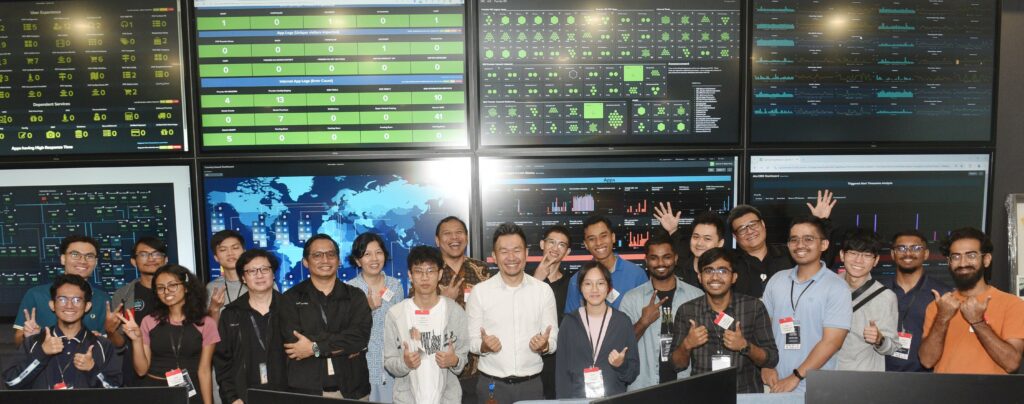
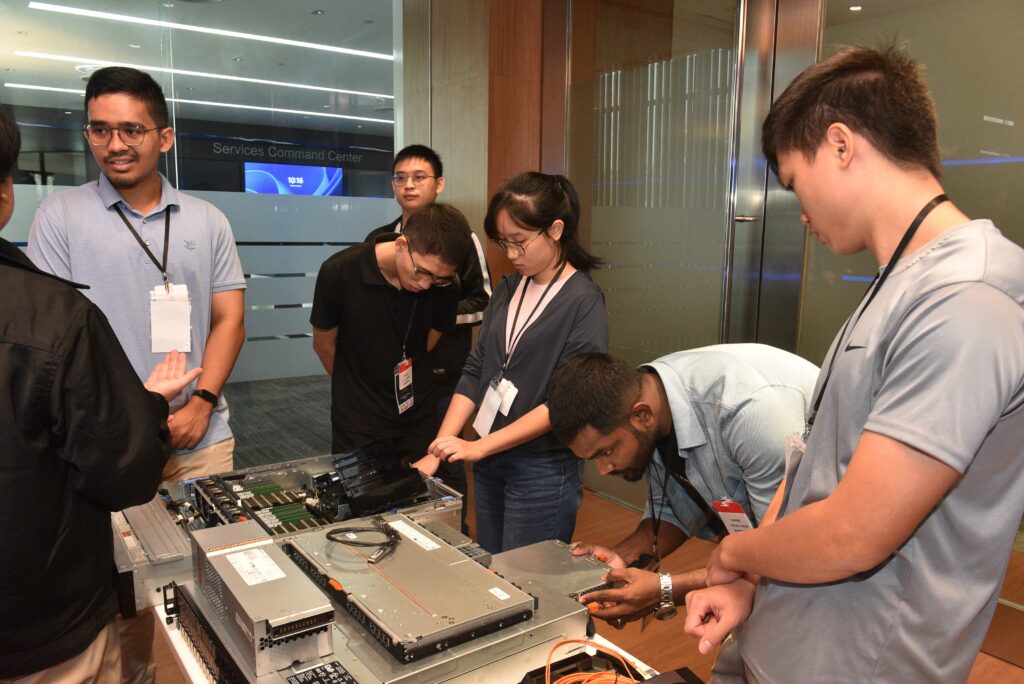
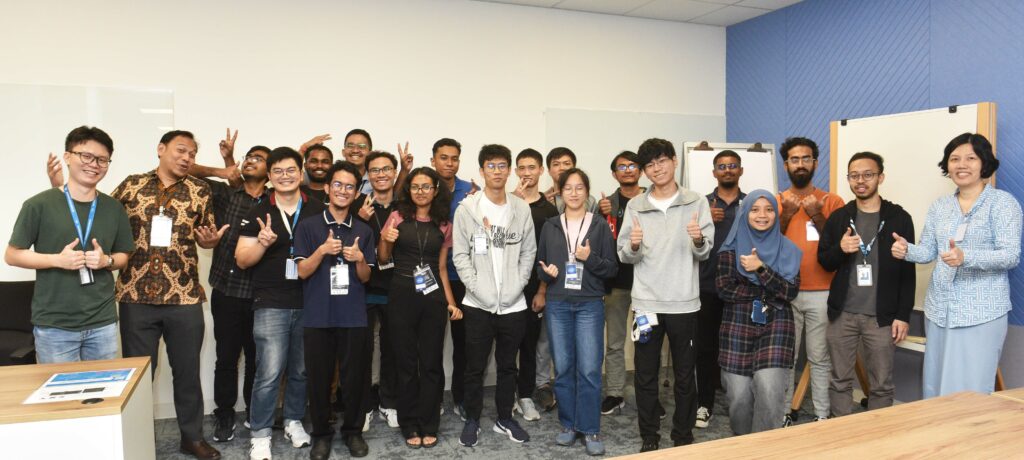
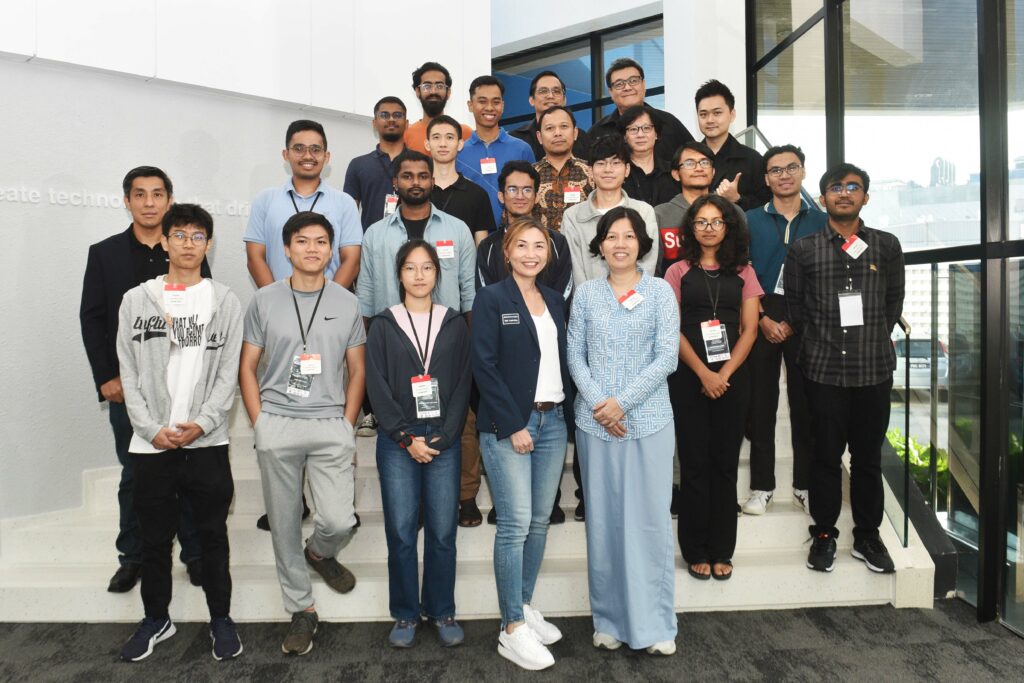
Closing Ceremony
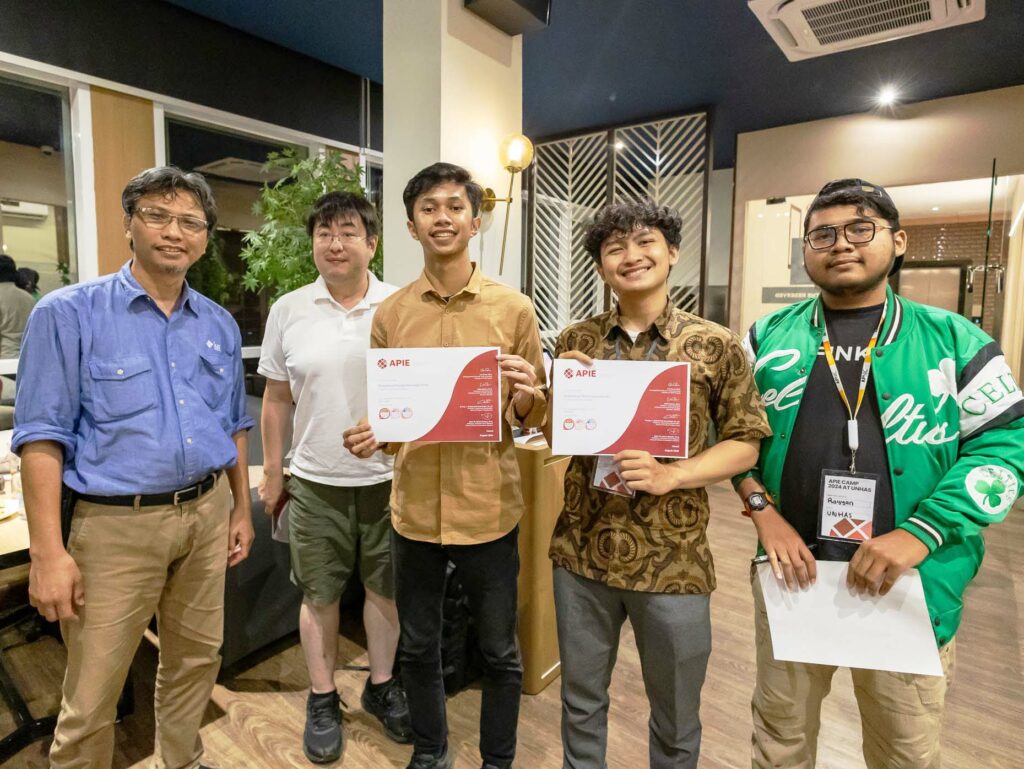
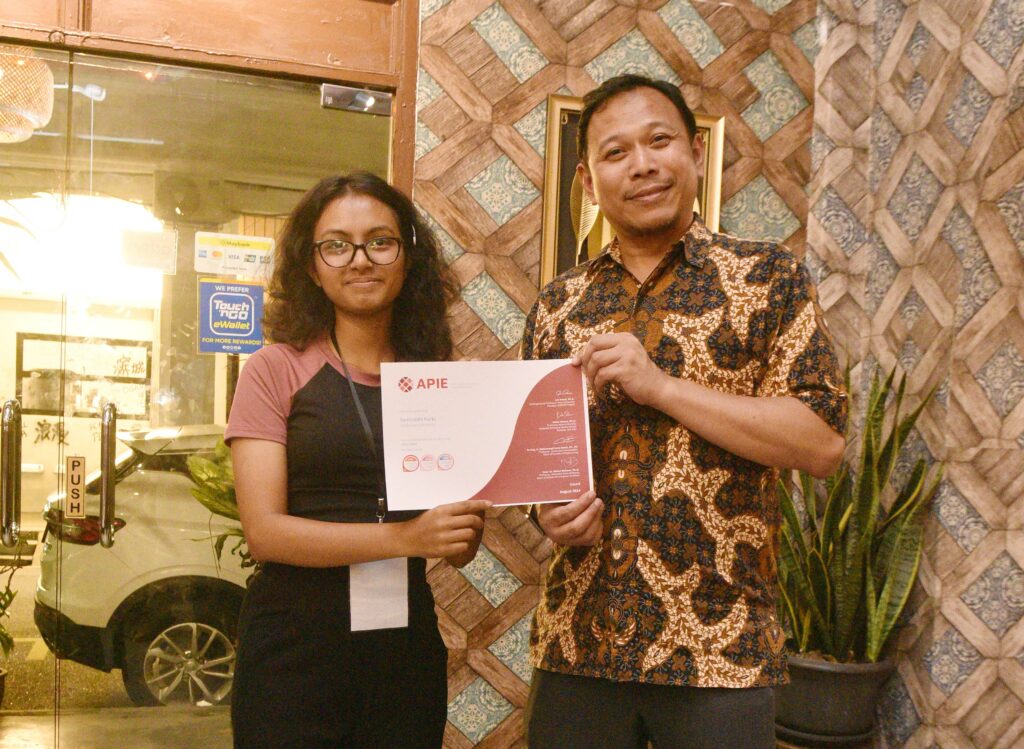
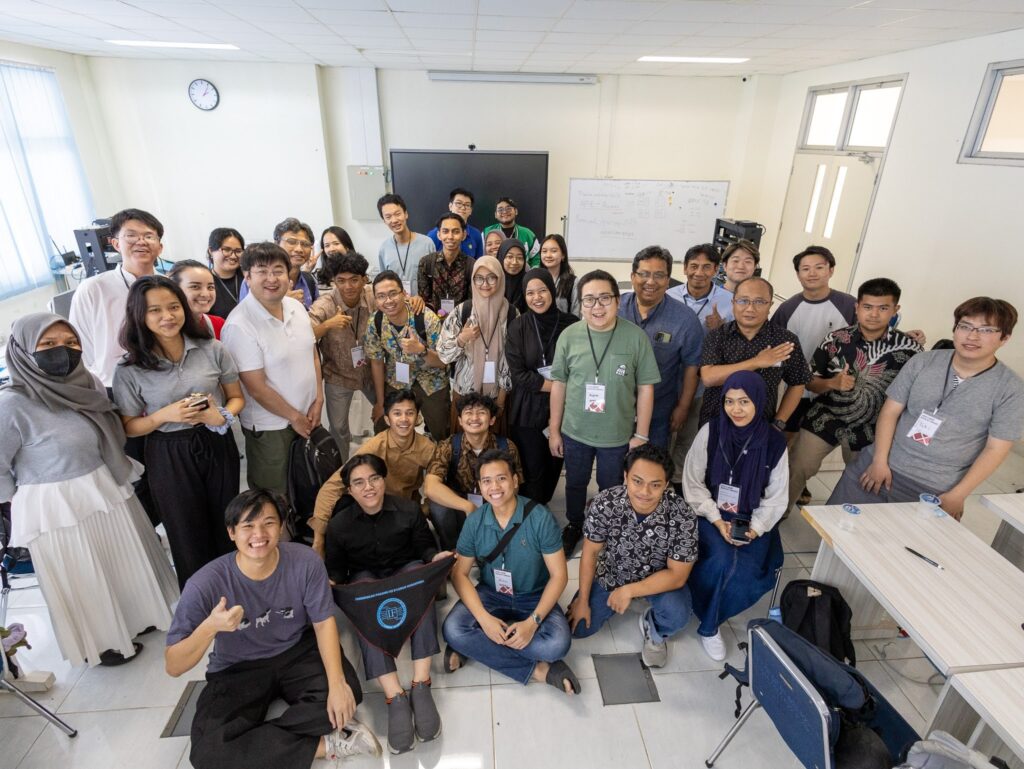
APIE Camp celebrates women in technology
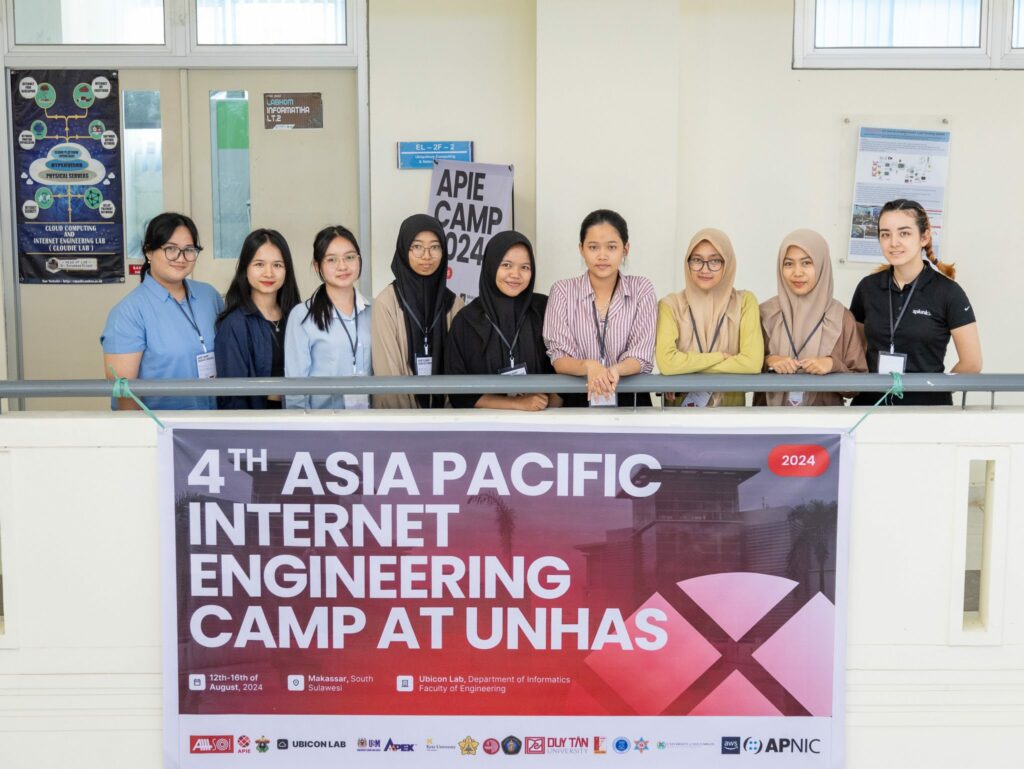
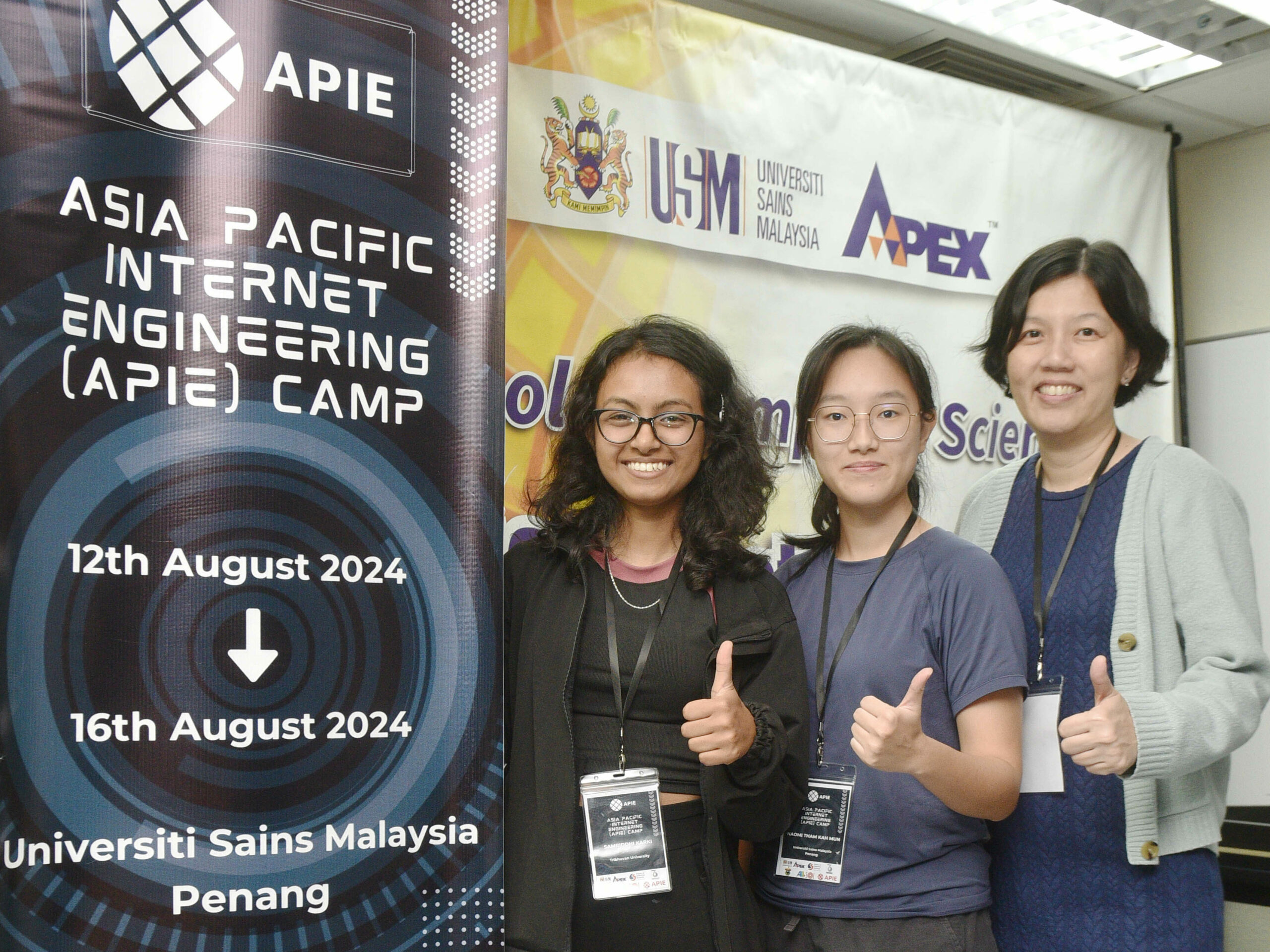
Although women’s presence in STEM-related areas is considered low globally, this camp welcomed 11 female participants. In the UNHAS venue, they represented almost half of the participants (9 out of 19). These figures are significantly impressive, and the SOI Asia community aims to support the rise of women’s participation in APIE activities.
Organization and camp gifts
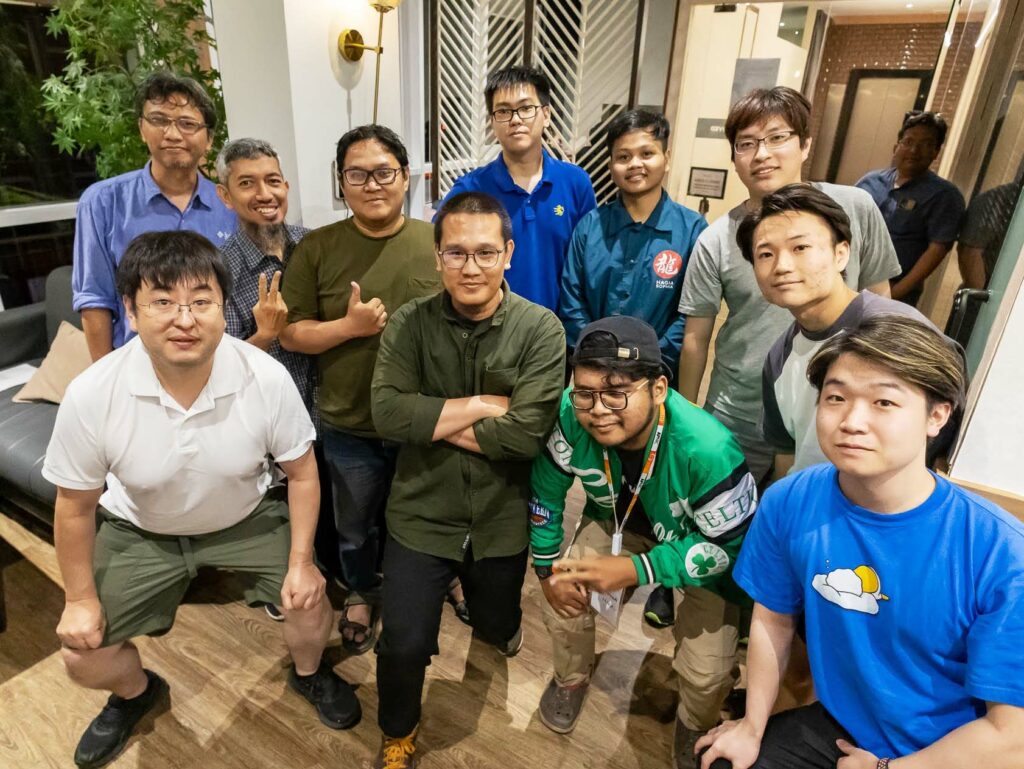
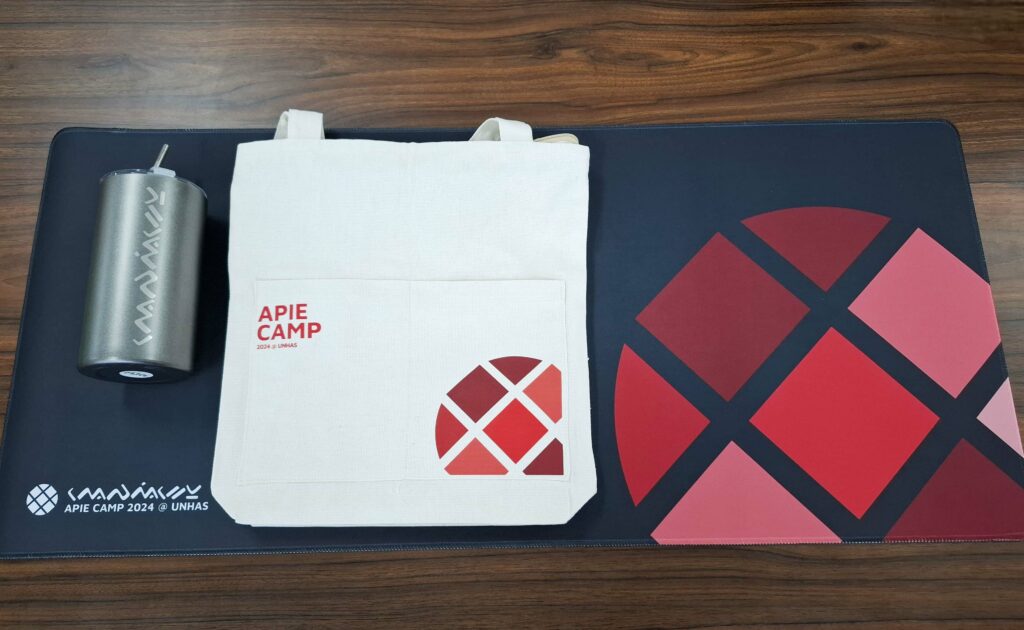
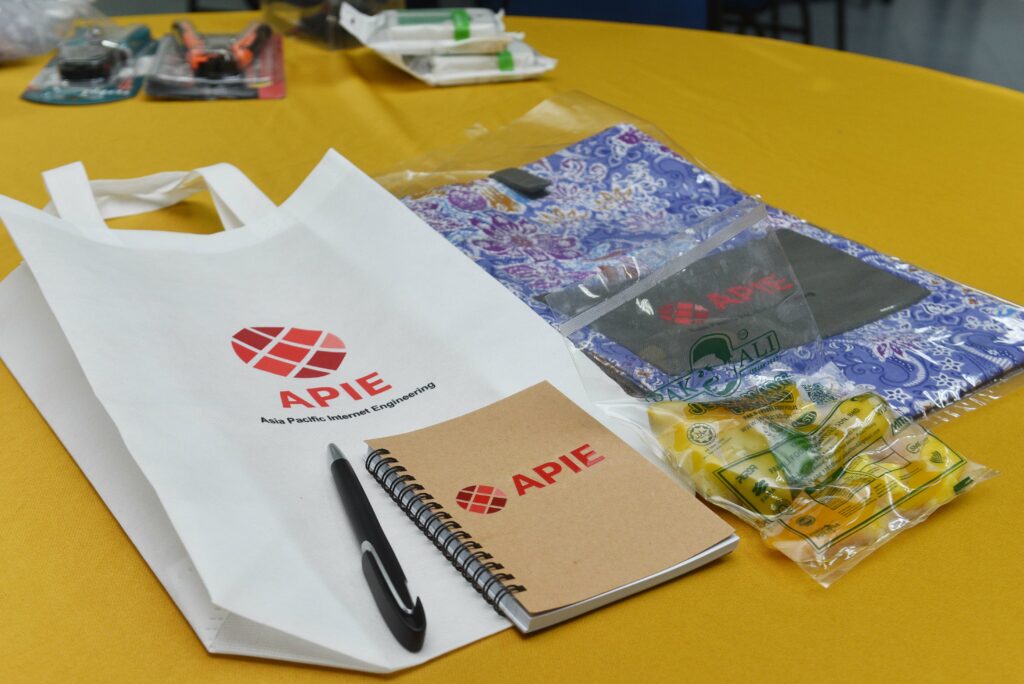
Final presentations
In the SOI Asia Monthly Seminar held on September 25, each team delivered their final presentations, summarizing the key takeaways from their learning experience at the APIE Camp, held at UNHAS and USM in August. The camp focused on developing technical skills, and the teams showcased what they had learned, including how to design and configure network topologies, set up virtual environments, configure DNS, and enhance security measures. They also explored IoT and cloud environments.
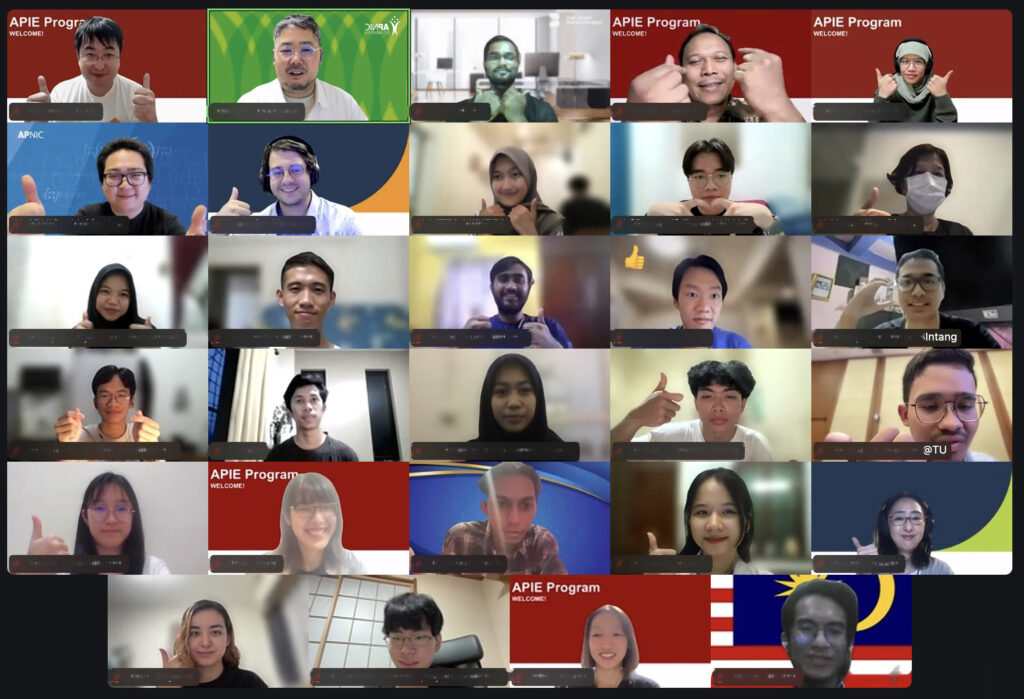
Despite the technical nature of these topics, several groups demonstrated creativity in their storytelling and visualization skills, making their presentations accessible and engaging, even for those without a solid technical background.
What is next?
The APIE Camp is hosted several times a year. For more details about how to join a camp, check out more information from the SOI Asia and AI3 representatives in your institution or on this website. Stay tuned!

